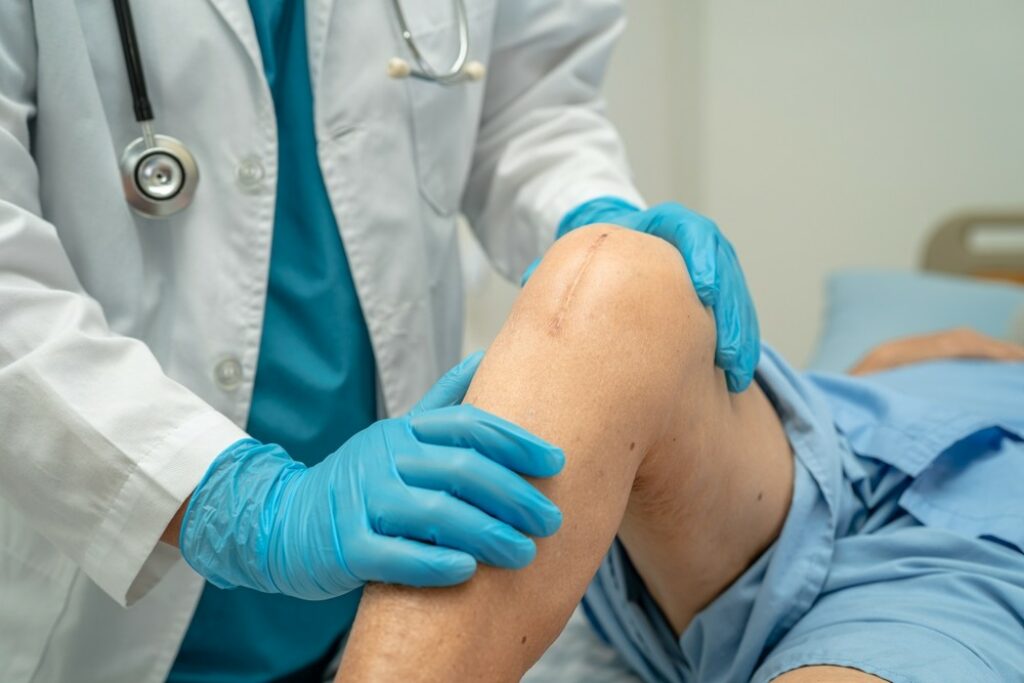
Knee Replacement Surgery
Of all the various joints in the human body, the knees tend to get overused and strained the most, due to physically demanding work, exercise and so on. Over time, the wear and tear becomes irreversible, resulting in the need for knee replacement surgery.
Related Topics (Sponsored Ads):
You shouldn’t have to suffer chronic pain on a daily basis. You deserve to be able to enjoy your life to the max. With that being said, below you will learn everything you need to know regarding knee replacement surgery, as well as methods that can help slow down the degeneration of the joints.

Overview
Knee replacement surgery, also known as knee arthroplasty, is a surgical procedure aimed at replacing damaged parts of the knee joint with artificial components. This procedure is commonly recommended for individuals suffering from severe arthritis or significant knee injuries that impact their daily activities and quality of life.
The primary goals of this commonly performed surgery are to restore function, relieve pain, and improve mobility in the affected knee. The knee joint is composed of the lower end of the thigh bone (femur), the upper end of the shin bone (tibia), and the kneecap (patella). It is one of the largest and most complex joints in the body. When any of these components become damaged due to injury or disease, knee replacement surgery may be the only viable treatment option. The surgical procedure involves removing the damaged parts of the knee joint and implanting prosthetic components made from metal and high-grade plastic.
Suitability Factors
The suitability for knee replacement surgery is determined by several factors. The severity of knee joint damage, as well as the impact on an individual’s daily life, are crucial considerations. Patients with advanced arthritis, significant knee damage, and limited mobility despite conservative treatments may be suitable candidates for knee replacement surgery.
Additionally, age, overall health status, and lifestyle factors play a role in determining the suitability for this surgical intervention. It is essential for individuals considering knee replacement surgery to consult with an orthopedic surgeon who can evaluate their condition and discuss the potential risks and benefits of the procedure.
Pros and Cons Involved
Knee replacement surgery offers several potential benefits, including significant pain relief, improved mobility, and restoration of function in the affected knee. Many individuals experience a substantial improvement in their quality of life following the procedure. However, it is important to note that knee replacement surgery also carries certain risks and drawbacks. Potential complications may include infection, blood clots, nerve damage, and issues related to the prosthetic joint, such as loosening and wear over time.
The recovery process can be lengthy and requires a commitment to rehabilitation. Despite these considerations, knee replacement surgery has proven to be a safe and effective treatment for many individuals with severe knee joint issues.
Types of Knee Replacement
There are different types of knee replacement procedures available, each with unique characteristics and considerations. Total knee replacement (TKR) involves replacing the entire knee joint with artificial components and is suitable for individuals with advanced arthritis or significant knee damage.
Partial knee replacement (PKR) focuses on replacing only the damaged part of the knee and is ideal for individuals with limited knee damage. Robotic-assisted knee replacement utilizes advanced technology for precision and accuracy, while revision knee replacement is performed when a previous knee replacement has failed or needs correction.
The choice of surgery is tailored to each individual’s unique healthcare needs, and working closely with a team of orthopedic specialists is crucial in determining the most suitable option.
Therapies and Medications
Before and after knee replacement surgery, various non-surgical therapies and medications may be utilized to manage knee joint issues. Physical therapy plays a vital role in strengthening the muscles around the knee and improving range of motion, which can aid in the recovery process. Pain relievers, anti-inflammatory drugs, and injections may be prescribed to manage discomfort and inflammation.
Additionally, prophylactic antibiotics and blood thinners may be recommended to prevent infection and reduce the risk of blood clots. For this reason, it is important for individuals undergoing knee replacement surgery to follow their healthcare provider’s instructions regarding medication use and therapy programs.
Self-Help Remedies for Knee Health
In addition to surgical interventions, there are practical self-care strategies and remedies that individuals can implement to help maintain knee health and potentially delay or avoid the need for knee replacement. Maintaining a healthy weight and engaging in regular low-impact activities, such as swimming, cycling, and walking, can help reduce stress on the knee joint.
Physical exercise and maintaining a healthy lifestyle can also contribute to overall joint health and potentially prolong the lifespan of the natural knee. Furthermore, the use of assistive devices and adherence to a customized exercise program based on individual needs and abilities can support knee health and function.
Final Thoughts
Knee replacement surgery is a significant intervention that can provide substantial relief from knee pain and improve mobility for individuals with severe knee damage. While it does involve some potential risks and drawbacks, the procedure has been proven to be an effective treatment option for many individuals.
It is essential for individuals considering knee replacement surgery to consult with orthopedic specialists to assess their suitability for the procedure and discuss the available options. Moreover, the implementation of self-help remedies and lifestyle adjustments can contribute to overall knee health and potentially reduce the need for surgical intervention.
Ultimately, the decision to undergo knee replacement surgery should be made after thorough evaluation and discussion with healthcare providers to ensure the best possible outcome for each individual.




